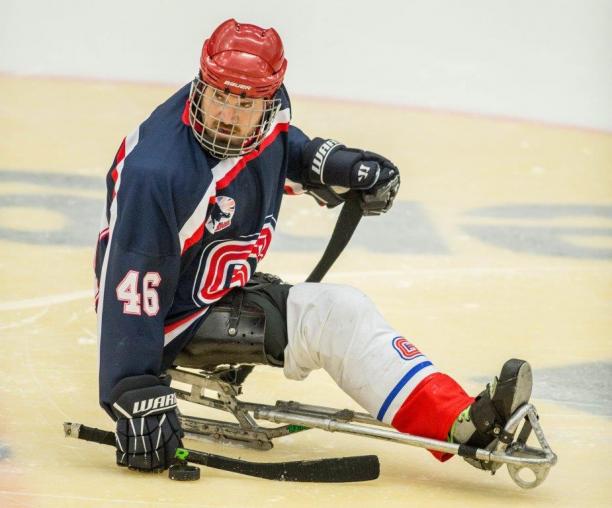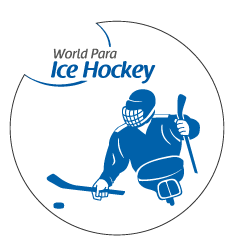British sledge hockey turns programme around
24.11.2016The underdogs are aiming for a top-three finish at the World Championships B-Pool.
 Darren Brown of Great Britain competes at the Ostersund 2015 IPC Ice Sledge Hockey World Championships B-Pool
© • Karl Nilsson
Darren Brown of Great Britain competes at the Ostersund 2015 IPC Ice Sledge Hockey World Championships B-Pool
© • Karl Nilsson
“Our goal will be a top-three finish to get to the Paralympic Qualification Tournament in 2017.”
While a top-two finish at the 2016 IPC Ice Sledge Hockey World Championships B-Pool may feel out of reach for Great Britain’s transforming program, veteran defenceman Darren Brown said the squad will be aiming for that final spot on the podium.
The four-team tournament will run from 28 November – 3 December in Tomakomai, Japan, where the host nation and the Czech Republic will enter as the favourites, challenged by Slovakia and Great Britain.
“Everyone who is going to Japan is going because they want to be part of the team and they feel we can surprise a few teams,” Brown said. “The reality is we are probably the most underfunded and supported team from all three pools, and to remain in pool B is above what is expected of us. Our goal will be a top-three finish to get to the Paralympic Qualification Tournament in 2017.”
In the 2015 edition of the event, the British narrowly escaped relegation to the C-Pool, grabbing a late win against Austria to save themselves.
Forward Tyler Christopher, who lost both his legs in 2009 while serving in the British Army in Afghanistan, is eager to avoid that again. He would prefer to get back to the sport’s biggest stage; it has been a decade since the British last saw Paralympic ice.
“We haven’t been to a Paralympics since 2006. We had a poor last tournament and should have done a lot better,” Christopher said. “The team has gone through a change of a new coach so we’ve been working on a lot of new things in training and working on developing players from within the British league.”
Circumstances have changed drastically for the British squad since it finished fifth at the 2015 World Championships B-Pool. New head coach Ian Offers picked up a “stalled” programme in the spring, and a new British Sledge Hockey Association board has started from scratch, building up relationships with the IPC, ParalympicsGB and Sport England.
A process is now in place for providing a stable setup for the sport in Great Britain, including a new Prospects Programme that introduces potential future international players to the competitive level. Through this, players have the chance to skate in front of national team coaches and receive feedback so they can eventually reach international play.
“The changes happened back in the spring at the same time we agreed to come to Japan to compete,” said Brown, who goes by the nickname Dazza. “We weren't willing to not come and face automatic relegation to Pool C, as that's not the type of team we are.”
The national team is still self-funded – each player had to raise GBP 2,000 to travel to Japan and they have had to pass on opportunities to play in tournaments in France and Russia. But Brown believes progress will be made soon in this regard, with ice sledge hockey being an exhibition sport at the 2017 Invictus Games and then hitting the global stage at the PyeongChang 2018 Paralympics.
On the ice, the British national team is used to being pressured early and often at the net, meaning they will have to rely heavily on their stingy defence and goaltending to pull out a surprise or two in Japan.
However, they have been on the B-Pool podium before, winning bronze in 2013.
Ironically, that was in Japan, too.
“It's part of the British spirit to be the underdog,” Brown said. “Slovakia are our main competition, although with the other three teams all having played each other recently, and therefore knowing what to expect, we may pull off the odd shock as we are the totally unknown team in the tournament.”
The top three teams from Tomakomai 2016 will progress to the Qualification Tournament for PyeongChang 2018.





















